They’re the deadliest thing on Earth. They suck your blood and spread disease, killing nearly one million people each year.
Are we talking about vampires? Lions? Gorillas? Actually, none of these things. We’re talking about mosquitoes. Are mosquitoes really this deadly?
What would happen if they all disappeared? Would humanity be better off?
It may sound unusual that a little bug could be this deadly, but it’s true. Mosquitoes spread diseases like malaria, yellow fever and the dengue virus.
They do it by biting someone who has a particular disease, and then biting you and injecting their saliva into your body. The saliva then enters your bloodstream, causing you to contract whatever virus or bacteria the mosquito picked up.
It’s not just humans they affect either. Animals and farm livestock all around the world suffer greatly from mosquitoes. Just a single bite can be fatal.
So, how do we get rid of these bugs?
Well, first we have to figure out exactly how many mosquitoes there are in the world. That’s incredibly difficult to find out. It’s estimated that there’s 7 trillion of them, in Alaska alone.
Yup, that’s right, Alaska. Due to global warming, and ocean temperatures rising, mosquitoes can live in places like this. And around the world, there are trillions of other mosquitoes.
There’s a number of ways we could get rid of them. Bats eat mosquitoes without any risks. They can eat 600 mosquitoes in an hour, so if we had enough bats, in theory, they could effectively wipe out mosquitoes all around the world. But then, how would we get rid of the billions of bats in the sky? Okay, maybe that’s not the best idea.
Another thing we need to understand is how mosquitoes reproduce. You may think they’re sucking our blood because we taste good, and they’re hungry. But instead of feeding themselves, they’re actually doing it for their larvae.
So, if we somehow got rid of all our blood and — wait, I know where this is going. Yeah, that’s not going to work either.
Instead of these options, we may need to release genetically modified male mosquitoes, ones that don’t bite, and can only produce sterile offspring. It could take several decades, but with enough of our genetically modified mosquitoes producing sterile offspring, mosquitoes would eventually be eradicated.
So now that they’re gone, what would happen next? Well, millions of people wouldn’t be getting sick and dying each year. You could enjoy being outside in the summer without any fear of being bitten, and animals would be much safer as well.
That’s right. Not many bad things would happen if we got rid of all the mosquitoes. But what about the circle of life and all that?
Don’t mosquitoes contribute to the food chain? Sure, some birds, bats and frogs eat quite a lot of mosquitoes, but they’re still not a hugely significant part of other creatures’ diets, and these animals will survive without mosquitoes.
And although mosquitoes do pollinate plants, it’s not significant enough to justify keeping the species alive.
But still, is getting rid of mosquitoes the right thing to do? After all, we would be getting rid of an entire species.
We should keep in mind that there are thousands of different species of mosquitoes, but only 6% of them bite us and spread disease. Not only that, but there are some theories that mosquitoes may help to protect the Amazon rainforest.
That’s because they’re so deadly and annoying to the people trying to cut down the rainforest that at times the bugs actually prevent them from doing so. And not to get all Thanos on you, but the human population is growing incredibly fast.
Maybe mosquitoes are helping us to keep our population in check. Wait! What am I saying? This would most definitely be a good thing.
Subscribe to What-If on Youtube or follow the show on Facebook Watch.
Sources
- “Mosquito Bites | Cleveland Clinic”. 2019. Cleveland Clinic. Accessed October 23 2019.
- “Mosquito-Borne Diseases”. 2019. World Health Organization. Accessed October 23 2019.
- “The Economic Cost Of Mosquito-Borne Diseases”. 2019. Mosquito Magnet®. Accessed October 23 2019.
- “14 Not-So-Fun Facts About Mosquitoes”. Smithsonian. Accessed October 23 2019.
- “Can One Be ‘Allergic’ To Mosquito Bites? | ECARF”. 2017. ECARF. Accessed October 23 2019.
- “Dear Science: Why can’t we just get rid of all the mosquitoes?”. Rachel Feltman and Sarah Kaplan. washingtonpost.com. Accessed October 23 2019.












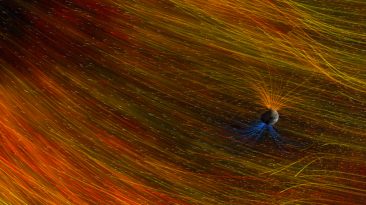
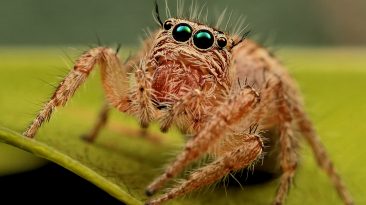



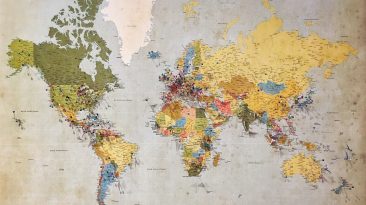


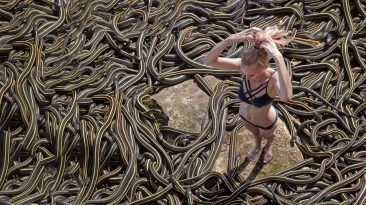
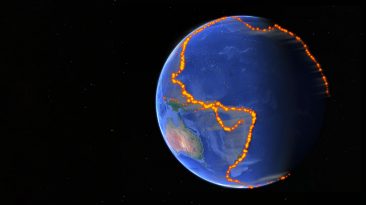
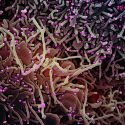

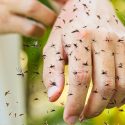



Male mosquitos only feed on plants
Females are the ones who suck blood
If we killed all mosquitoes we will have no frogs.